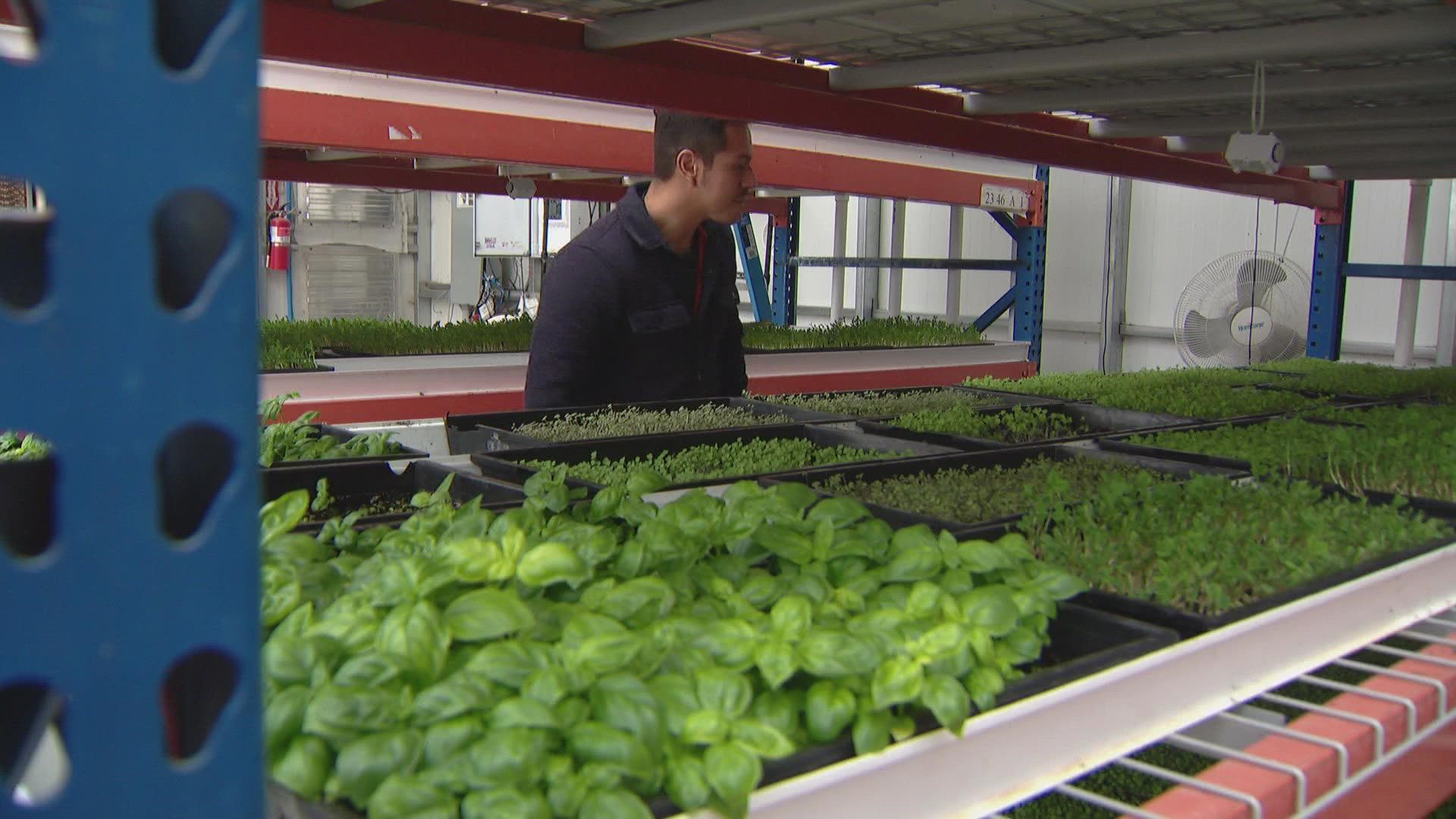First-generation farmer works to sow future for young growers of color
Roberto Meza left a full-ride scholarship at the Massachusetts Institute of Technology and became a farmer on Colorado's Eastern Plains.
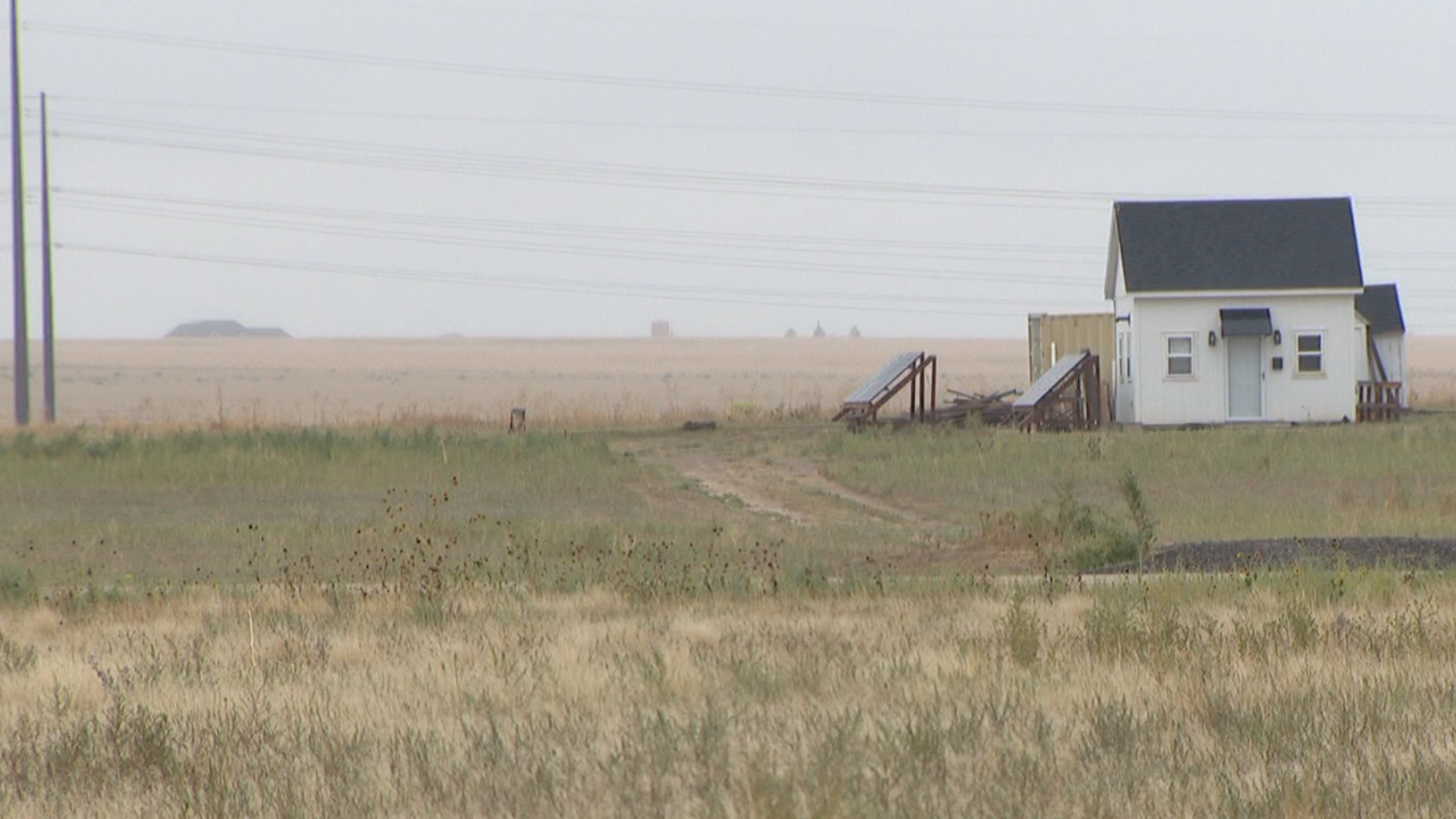
Roberto Meza smiled as he surveys his crops. His weekly haul of basil, arugula and peas had finally fallen into a farmer's routine of growing, harvesting and selling — but it took years to get here.
As a first-generation farmer of color and an immigrant, Meza struggled to grow his dream into the farm it is today.
"It's really, really hard for new farmers to gain access to capital — let alone land — to start their own operations," he said. "As a farmer of color who wants to get involved in this, there are so many more hurdles and challenges we have to jump through."
Again and again, loan officers denied Meza and his business partner money for their sustainable microgreens farm.
"It was infuriating," he said with a bitter laugh.
Meza said he now has a strategy to help other new farmers avoid the same challenges — one that gives him a market for his greens, provides local food to the community and helps the next generation of farmers sow their future on Colorado land.
"We gotta support young farmers," he said. "It matters because it's all we have."
Chapter 1 From artist to entrepreneur

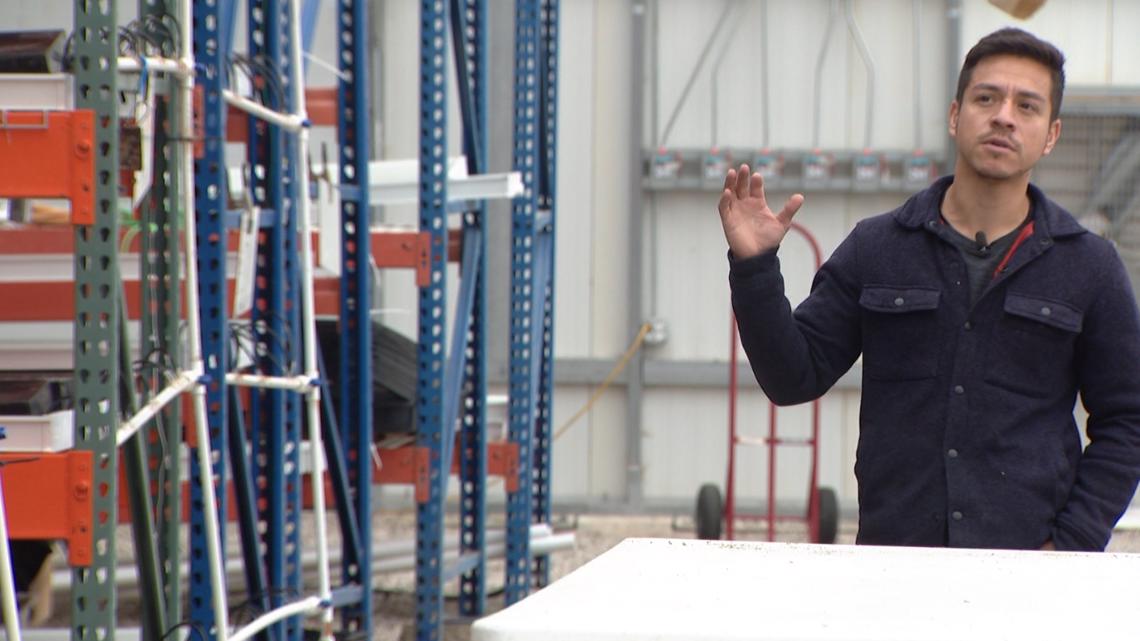
As the first bite of autumn blew across Colorado's Eastern Plains, the sun's rays seeped through overcast skies to warm Meza's greenhouse. Inside, the fans whirred and rustled trays of microgreens on risers, fed by hydroponic watering systems.
Meza's small operation produces about 100 pounds of quick-growing microgreens every week or so, but it took years of work to reach the first harvest.
In the early 2010s, he pursued work as an artist in New York City. He specialized in multimedia installation art — not crop yields — and his work helped him to win a full-ride scholarship to a graduate program at the Massachusetts Institute of Technology, he said.
He attended for one semester, fell ill and returned home to Ohio, where he began to explore food as a way to heal himself.
"I started to tinker in my basement with similar systems like you see here," he said, referencing grow stacks in the greenhouse. "It fulfilled my desire to work with my hands."
Below: Watch an extended interview with Roberto Meza:
He connected with a friend from high school, Dave Demerling. They went into business together and bought land in 2014 to start their farm about 15 miles east of Denver International Airport.
They had help from family but needed money to get the business off the ground, so they tried to get a loan.
"We gave them our business plan, we did a whole budget forecast and pro forma, and we were denied the loan," Meza said. "It's like, come on!"
"It wasn't the first denial, and it wasn't the last," Demerling said.
Eventually, they secured the money. Meza said he began to camp on their 30-plus acres before they had electricity or running water in an effort to jumpstart the business. It took four years until their first harvest in 2018.
"It's been a seed for so long, and it's finally sprouting some roots and some shoots," Meza said.
He believes he knows how to help prevent other farmers of color from going through the same struggle.
Chapter 2 A hub for food and farmers

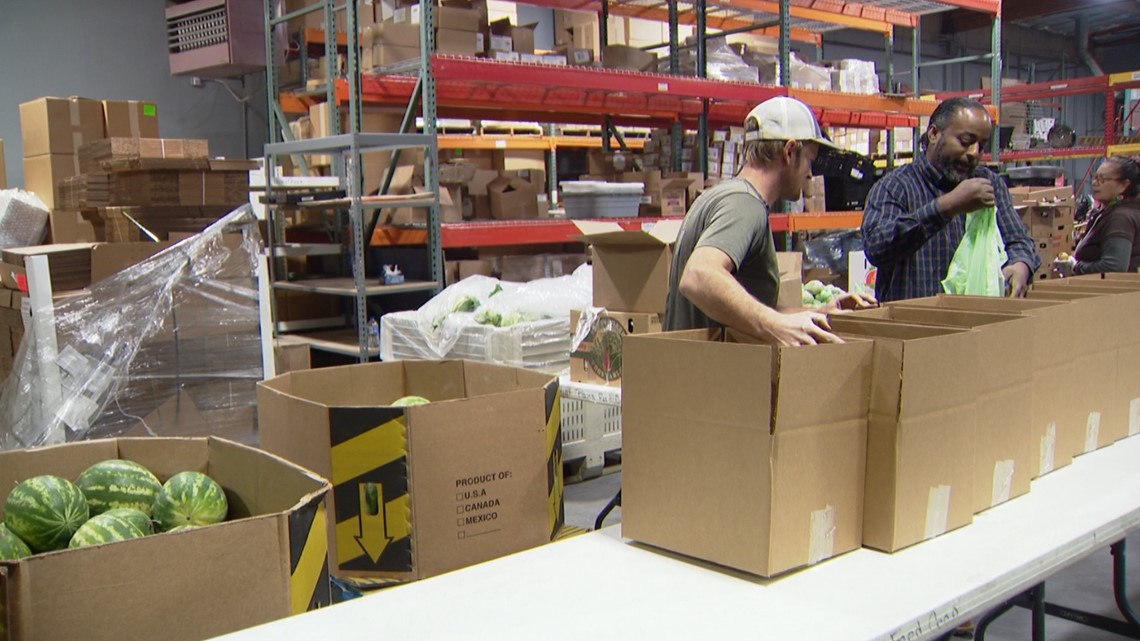
In Colorado, only about one in 20 farmers identifies as Hispanic, the U.S. Department of Agriculture estimated. But data shows that more than 75% of those who work on farms are Hispanic in the U.S Department of Labor region that includes Colorado.
"One of the dreams that I have is for farmworkers who want to participate in their own business to become farm owners," Meza said.
Central to that dream is an aging warehouse in Denver's Montbello neighborhood. Inside, Meza's workers and fellow farmers pack their crops in boxes together, assembly-line style. This is the East Denver Food Hub, a second business that Meza started in 2020.
"We are not a nonprofit," he said. "We are a social enterprise to connect farmers to markets and offer the services of aggregation, distribution and market access."
Local farmers from across the region bring their products to the food hub as a central distribution point. Some of the boxes are sold to wholesalers or institutions like schools, and others are sent to families as meal boxes.
Combining harvests connects the farmers to buyers who otherwise wouldn't be interested in dealing with a dozen different small farms.
"We had to create a new organization to really meet our needs because there wasn't one when we started farming," Meza said.
As part of the food hub, farmers can show bankers that they have buyers lined up before they even plant a seed, which helps them secure loans for land more easily, Meza said.
"For me, as a first generation farmer, I want to alleviate those challenges for others," he said. "We're able to create a sense of co-collaboration or co-creation that enables all of our communities to really thrive."
Chapter 3 Growing the next generation

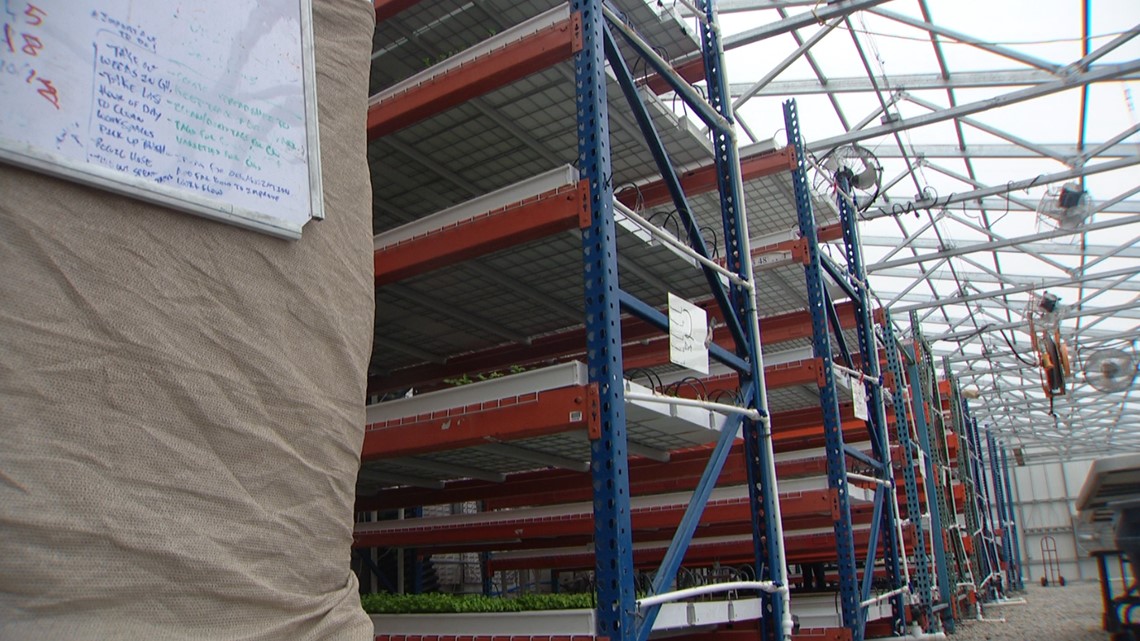
Just steps away from Meza's greenhouse on the Eastern Plains sit two modified shipping containers — proof of the work he's trying to encourage.
Inside the humid containers, Irving Reza tends to his mushroom crop. In one, he pasteurizes and fertilizes spores that he grows in 3-gallon plastic bags in the second container.
Reza said he started working on Meza and Demerling's farm after the grower he worked for before shut down. After two weeks, he presented his plan for a mushroom farm to Meza, who said he worked to help get it off the ground.
Now Reza brings his mushrooms to the East Denver Food Hub for distribution alongside Meza's microgreens. Meza hopes to scale up business for himself and others on his farm with larger, institutional buyers like schools and hospitals.
In early September, Greeley's school district placed an order for 180 pounds of Meza's peas — his largest fulfillment to date and proof, he said, there's a need for more farmers who look like him.
"They all want local," he said, "But we don't have enough farmers to supply them."

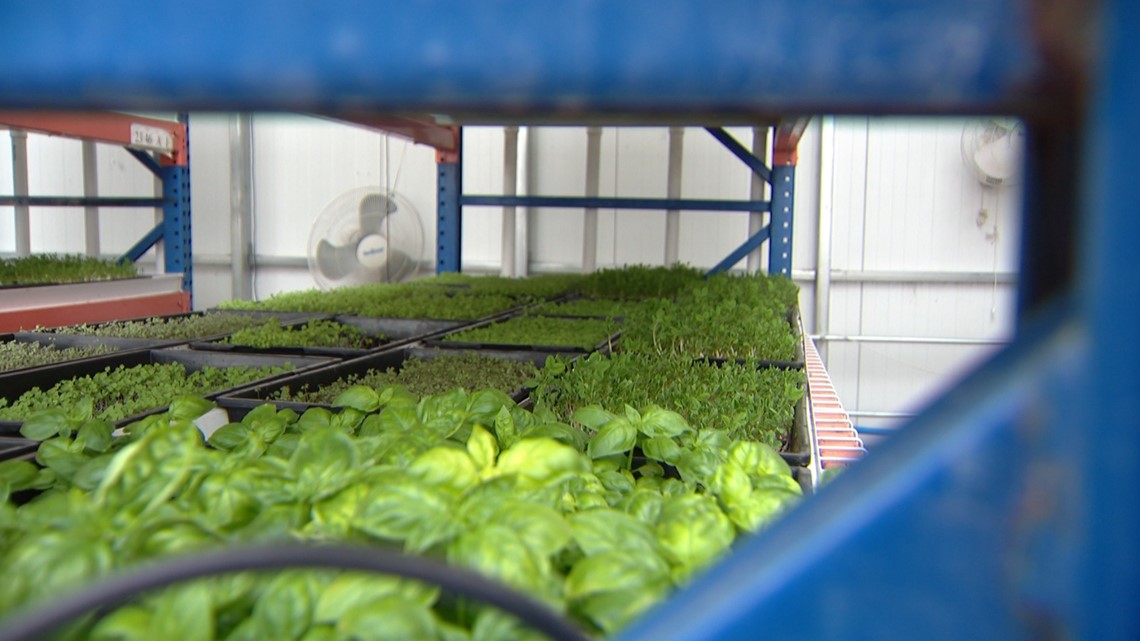
SUGGESTED VIDEOS: Hispanic Heritage
9NEWS+
9NEWS+ has multiple live daily shows including 9NEWS Mornings, Next with Kyle Clark and 9NEWS+ Daily, an original streaming program. 9NEWS+ is where you can watch live breaking news, weather updates, and press conferences. You can also replay recent newscasts and find videos on demand of our top stories, local politics, investigations and Colorado specific features.
To download 9NEWS+ on Roku search for KUSA.
To download 9NEWS+ on Fire TV search for 9NEWS.


